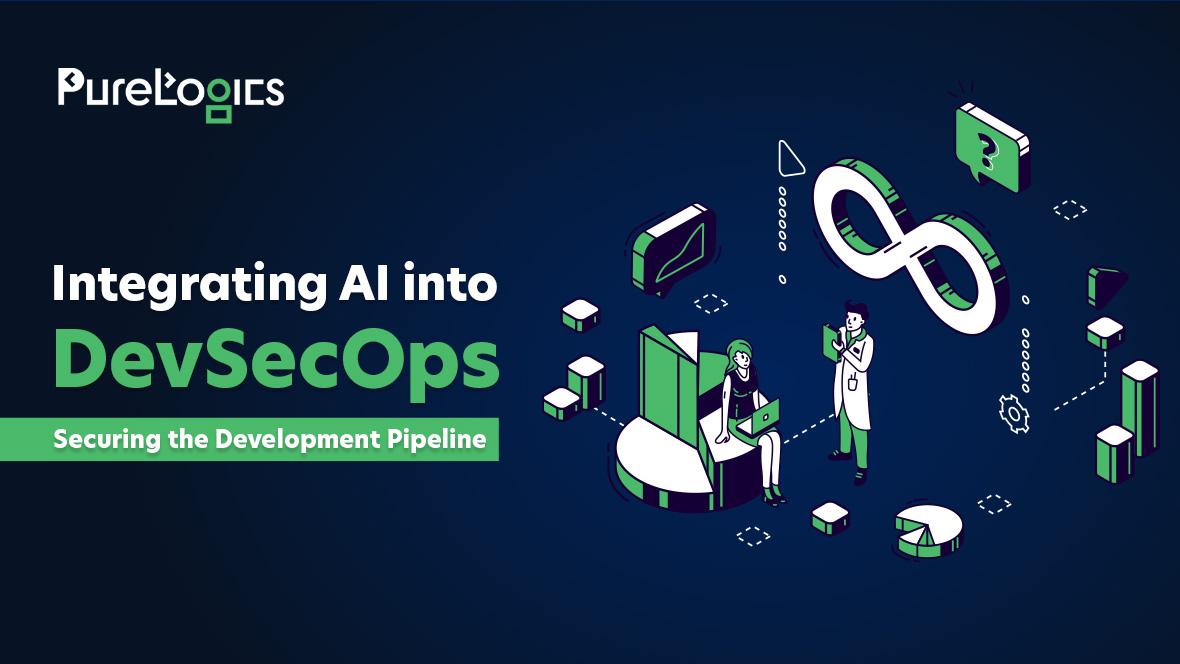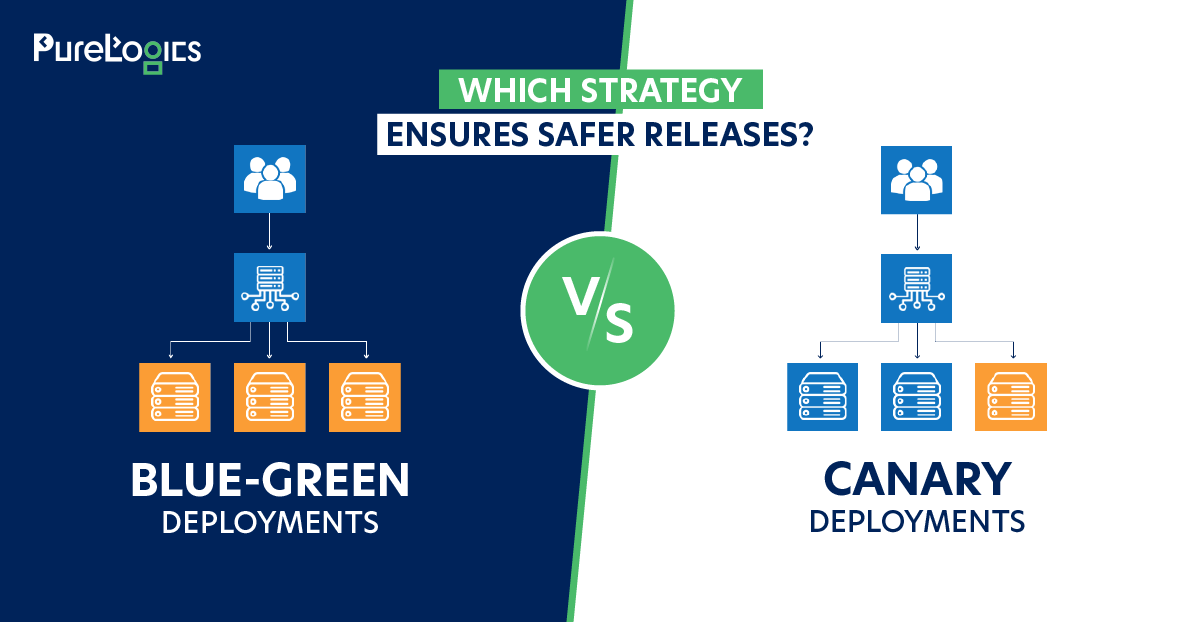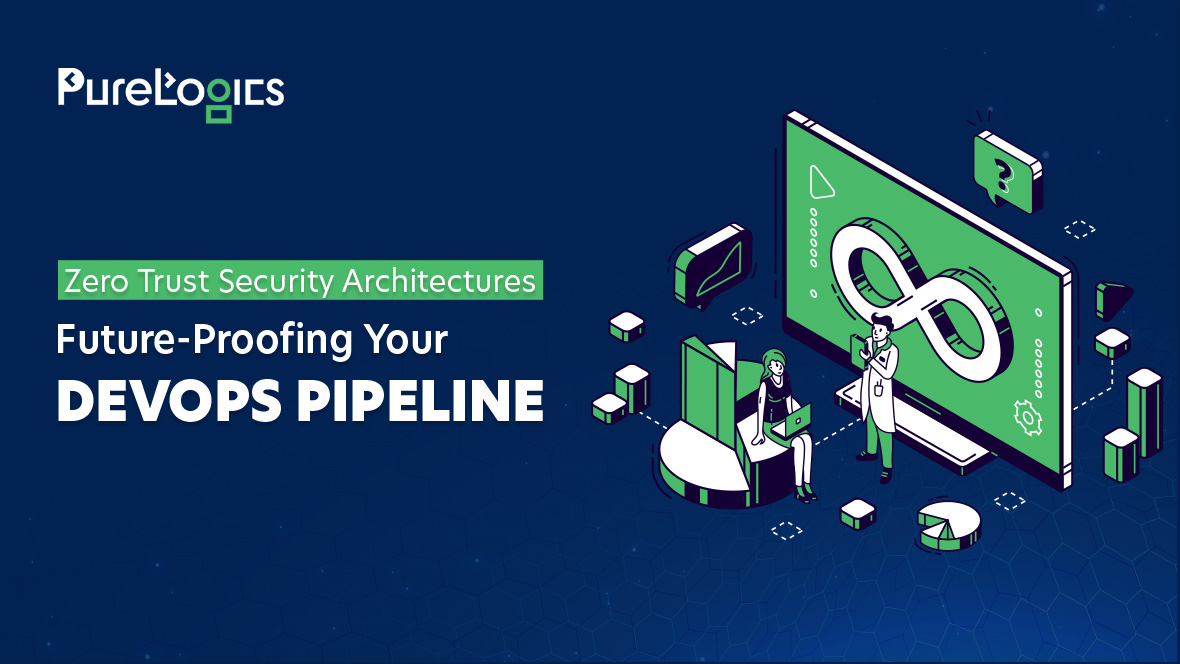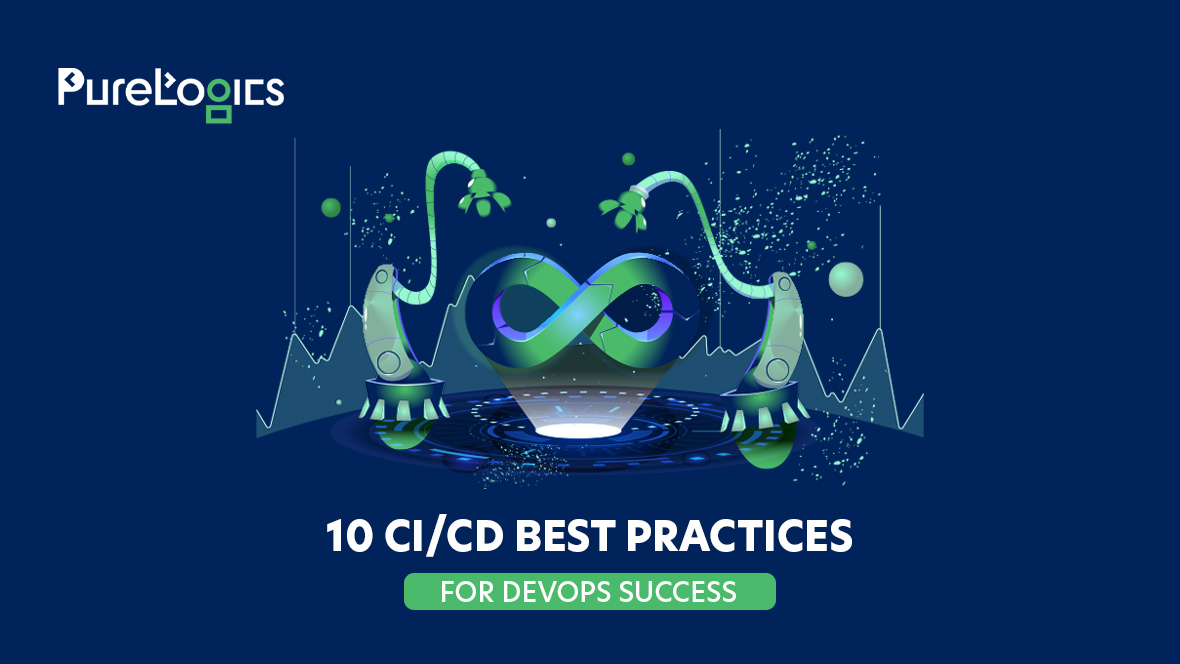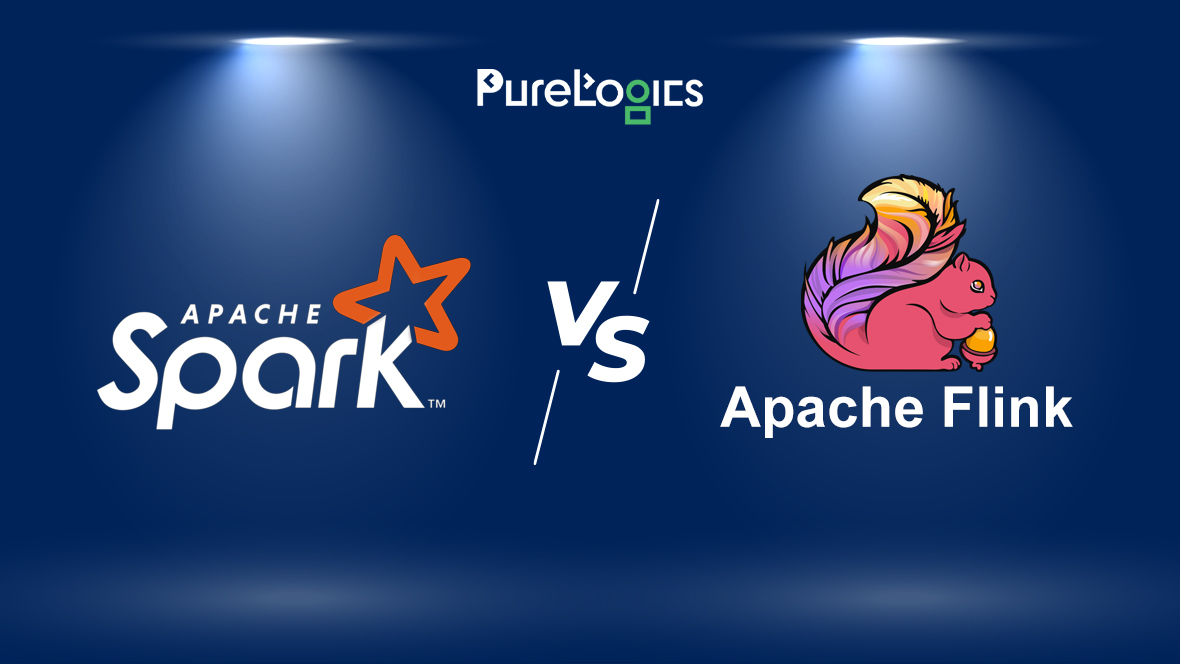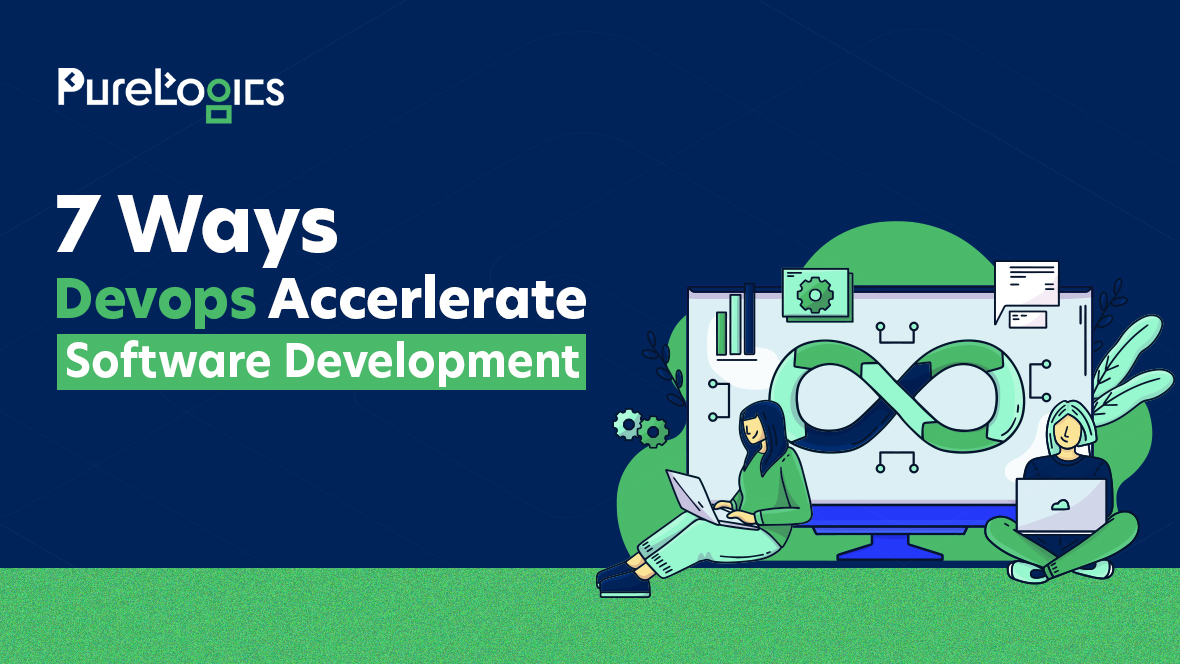Today, DevOps is among the swiftly evolving paradigms in software development. In the wake of rising security concerns in software technologies, DevSecOps has been gaining a lot of prominence. It has urged practitioners to add robust security practices to the DevOps workflows. However, incorporating security into DevOps’ workflows will influence agility and hinder overall delivery speed.
We have now seen that artificial intelligence has introduced automation in multiple software domains. Software security is no exception; AI also introduced automation into it. AI-supported security practices, especially those employing machine learning, hold promise in streamlining security processes. They minimize manual efforts and ensure continuous delivery speed, aligning with the DevSecOps models.
In this blog post, we’ll explain the different ways AI can be incorporated into the DevSecOps pipeline. We will also explain the benefits AI in DevSecOps brings and the prevailing challenges businesses may come across along the way. So, without further ado, let’s get started!
Understanding DevSecOps
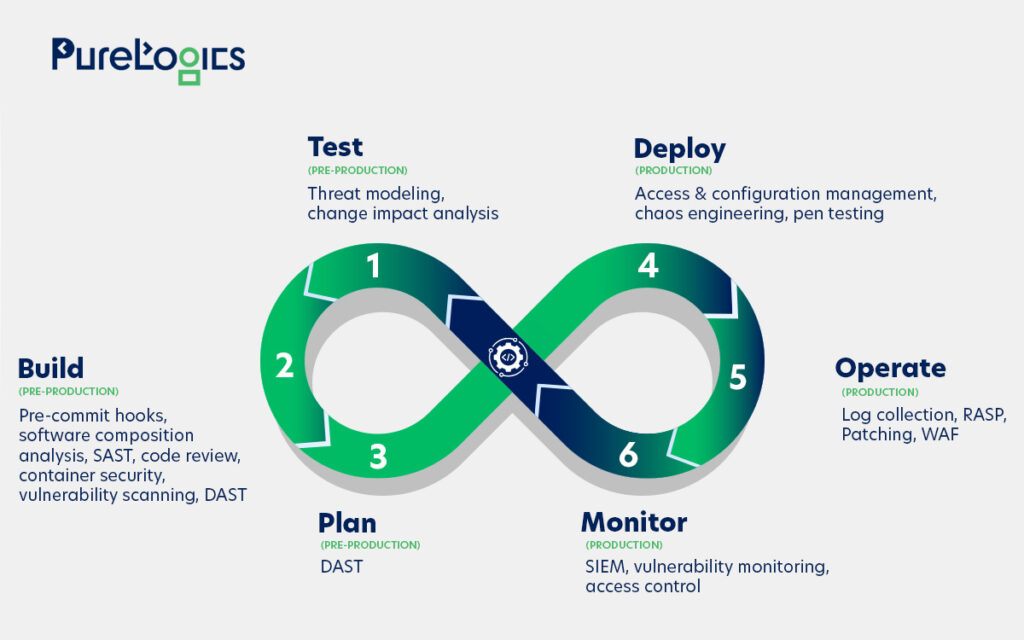
DevSecOps (short for development, security, and operations) is a strategic practice that integrates security practices into the DevOps model. It doesn’t treat DevOps as a separate process or a last-minute obstacle. It bakes security directly into the software development lifecycle. The primary advantage of DevSecOps is the development of a secure and efficient end product.
Understanding AI-Supported DevSecOps
AI-supported DevSecOps is an advanced representation of the DevSecOps approach. In simple words, it is a way of using AI to enhance security in the software development mechanism. In DevSecOps, software developers integrate security into each phase of the development process (from planning to software delivery). With AI, tasks such as identifying threats and resolving security problems can be streamlined.
This strategic approach secures the software systems and maintains the development speed. It ensures that software aligns with both development (Dev), security (Sec), and operations (Ops) goals.
How AI Enhances DevSecOps Pipelines
Now, let’s break down the way AI improves the DevSecOps pipeline!
Threat Detection and Prevention
AI-powered systems can analyze data in real-time. It figures out potential security threats that human analysts might miss. Machine learning algorithms learn from previous cyberattacks and detect anomalies in system behavior. This proactive approach helps experts avoid security issues before they infiltrate the system.
Automated Vulnerability Scanning
Traditional security scanning methods decrease the speed of the DevOps workflow. They are, undoubtedly, time-consuming. AI-supported vulnerability scanners can increase the speed and efficiency of this process. It automates code analysis, figures out issues, and also provides you with suggestions for fixing them. ML models help developers address security issues much faster.
Intelligent Patch Management
Patch management is an essential aspect of maintaining security in DevSecOps. However, it can often become complex, particularly when there are large systems. AI analyzes the severity of vulnerabilities, their likelihood of exploitation, as well as the impact of the patch on system performance. AI tools can automate the scheduling and deployment of patches. They decrease downtime and ensure systems are always up to date without any sort of human intervention.
Enhanced Risk Assessment
AI can continuously assess security risks across the DevSecOps pipeline by analyzing code changes, application dependencies, and third-party components. It provides real-time insights to security teams and enables them to make well-executed decisions about the level of risk related to new deployments. This helps professionals reduce security blind spots and improve the entire security posture.
Automating Compliance Checks
Ensuring compliance checks is among the challenges in a security-focused process. AI can automate compliance checks by analyzing configurations, deployments, and code changes against predefined regulatory guidelines. This reduces the manual overhead of auditing. Moreover, it ensures that all aspects of the pipeline meet security and compliance requirements from the outset.
Challenges of AI Integration in DevSecOps
| Challenge | Explanation |
| Data Privacy Issues | AI needs access to sensitive data, which raises concerns about privacy and security. |
| Bias in AI Models | AI can make mistakes if it’s trained on incomplete or biased data. |
| Complex Implementation | Setting up AI within DevSecOps requires expertise, making it hard for smaller teams. |
| High Costs | AI tools and their maintenance can be expensive for many organizations. |
| Constant Maintenance | AI systems need regular updates and retraining to stay effective and accurate. |
Best Practices for AI Integration in DevSecOps
If you want to successfully integrate AI into DevSecOps, you must incorporate the following proven practices:
Start Small and Scale Gradually
Always begin with AI in targeted areas of the DevSecOps pipeline. It includes automating code scans or vulnerability assessments. As these systems prove effective, expand their use across the entire pipeline to maximize the benefits without overwhelming teams with new technologies.
Leverage Pre-Built AI Solutions
Instead of developing AI systems from scratch, you should use pre-built AI tools that have been particularly designed for DevSecOps. These solutions are easier to implement and have the added benefit of industry-related expertise.
Collaborate Across Teams
You must understand that AI’s integration in DevSecOps needs collaboration among the teams of development, security, and operations departments. So, always encourage regular communication and feedback loops among the teams. This will ensure that AI tools fulfill the specific needs of each team. Moreover, this will ensure that security is a shared responsibility.
Continuous Learning and Adaptation
AI systems must be regularly updated and retrained to keep up with evolving cyber threats. Implement feedback loops where AI learns from new incidents, allowing it to adapt and improve over time.
Ready to Integrate AI into DevSecOps?
Integrating AI into DevSecOps offers a transformative approach to securing the software development pipeline. If your organization is looking to strengthen its DevSecOps pipeline with AI-driven solutions, PureLogics can help. Our team specializes in integrating advanced AI technologies to streamline security processes while maintaining the agility of your development lifecycle.
Don’t wait for another day. Fill out the form now to learn more about how we can secure your DevOps workflows with AI solutions.


 [tta_listen_btn]
[tta_listen_btn]
 February 19 2025
February 19 2025

